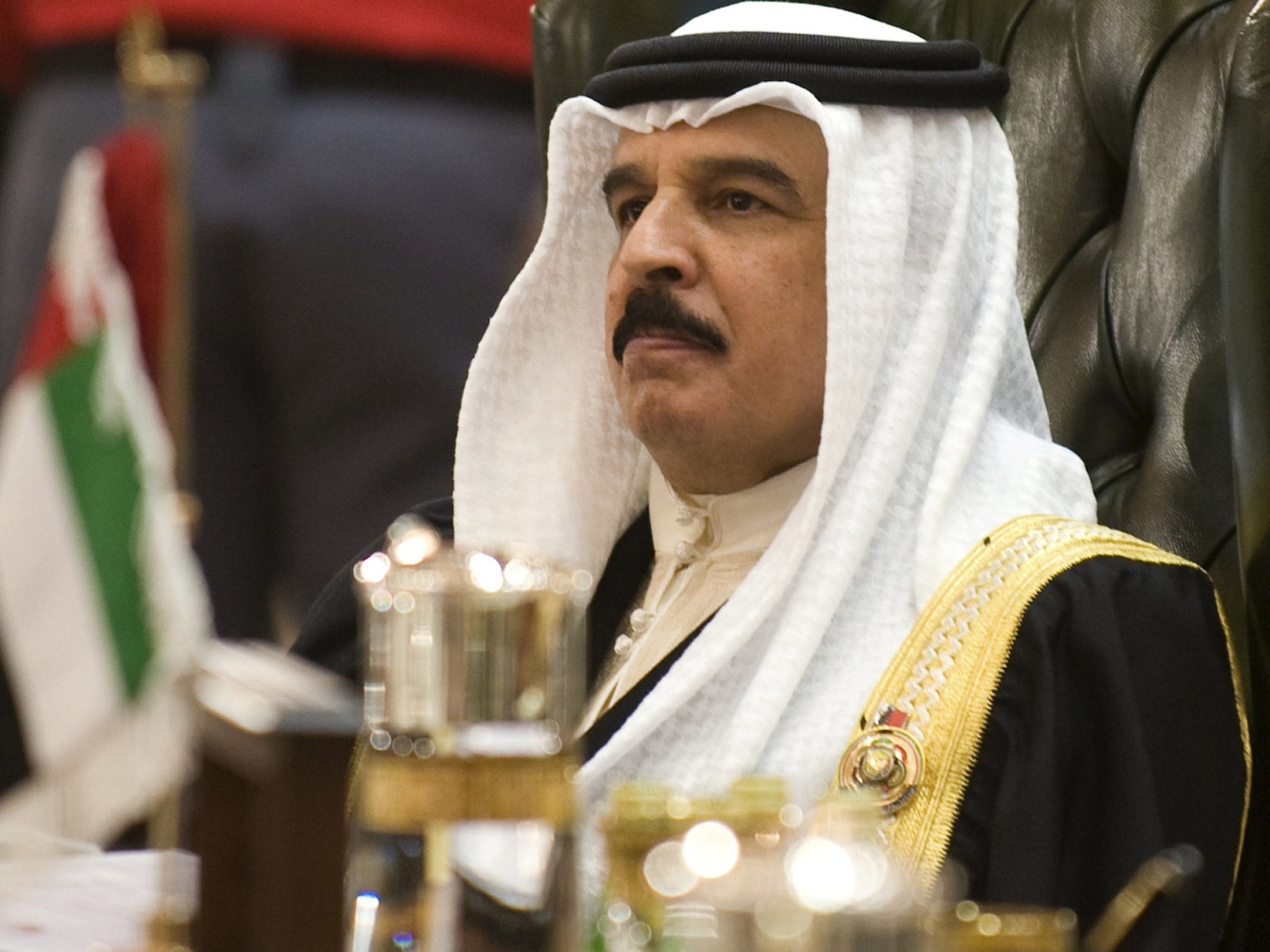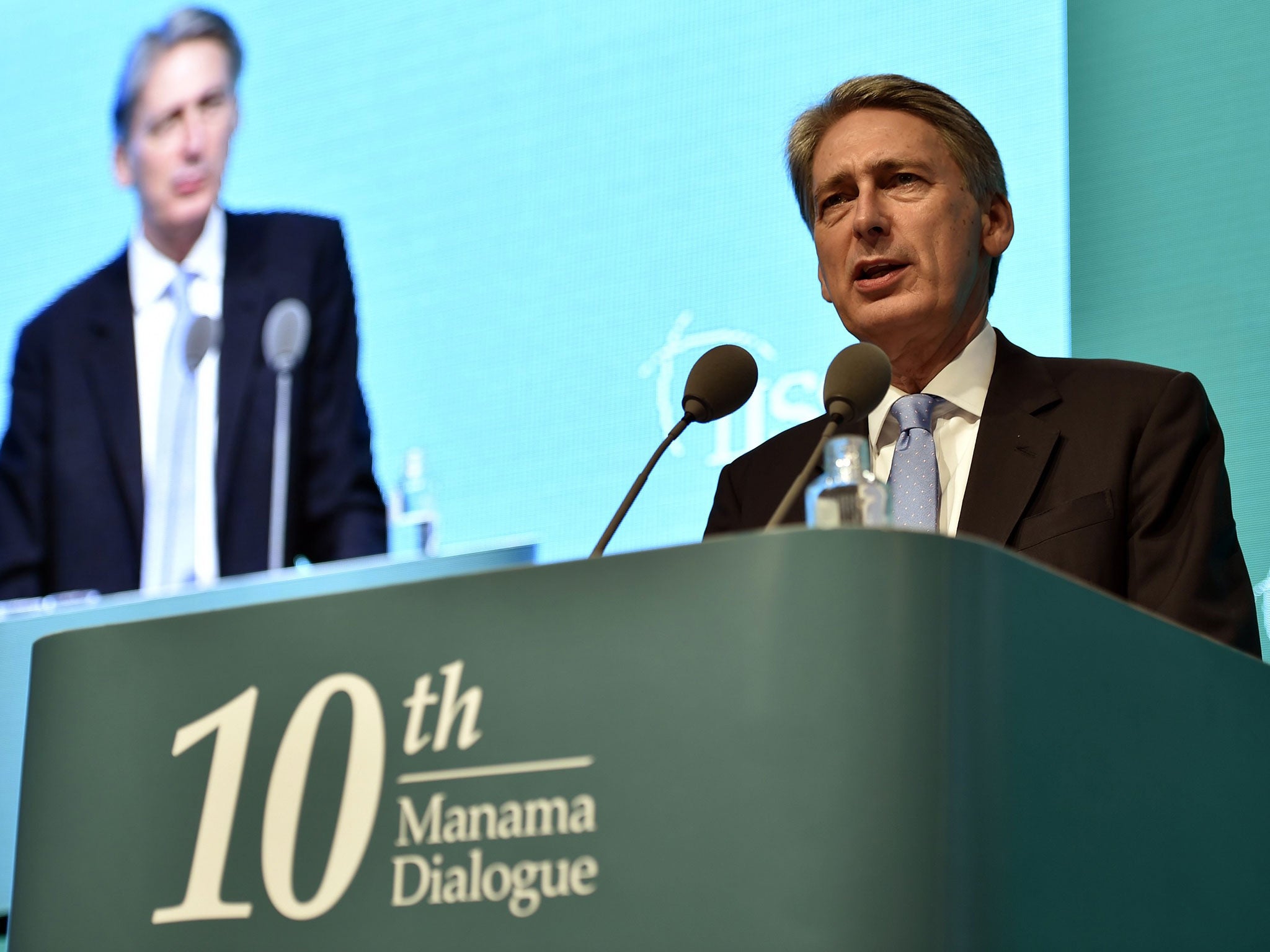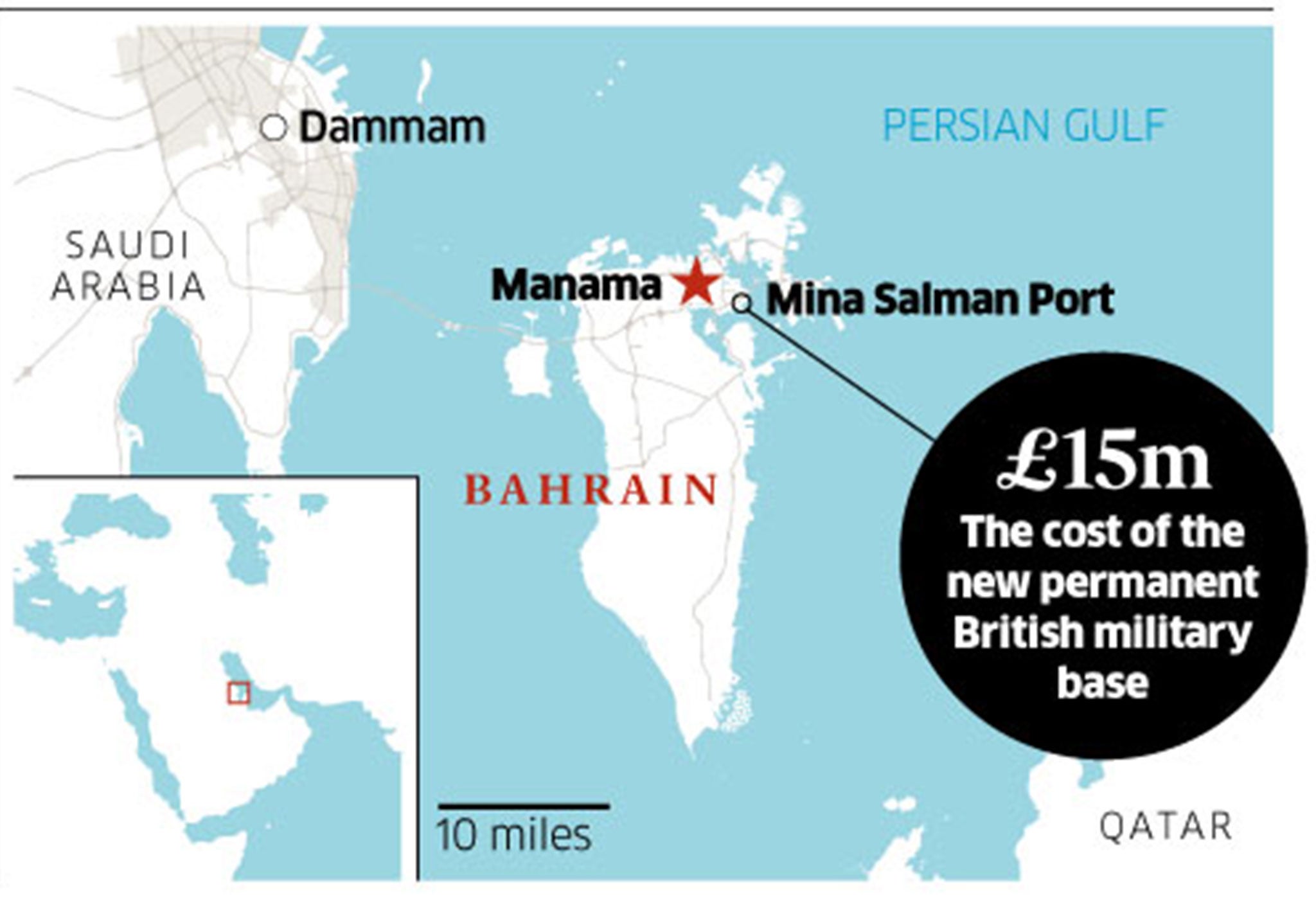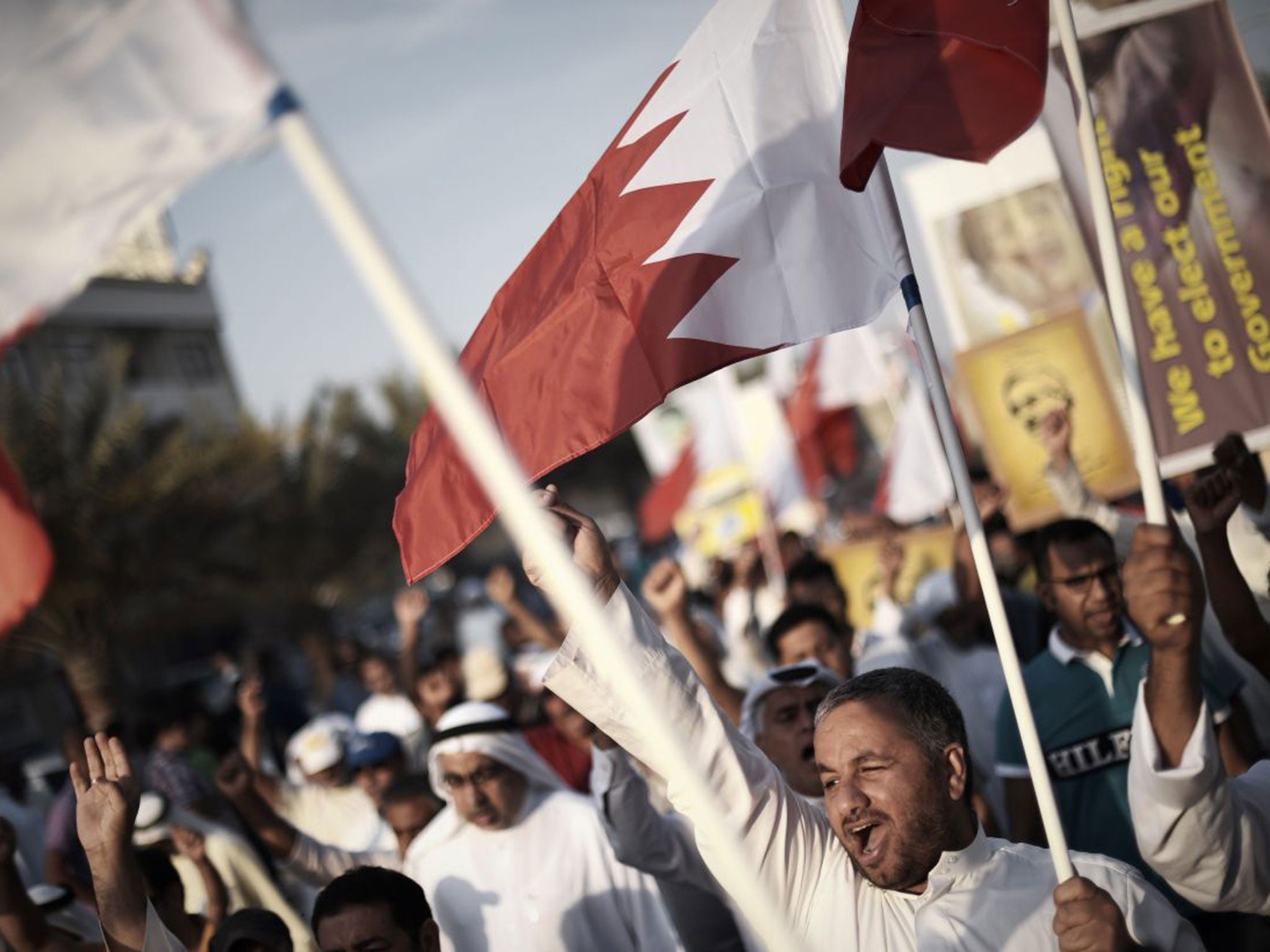British Navy base in Bahrain faces legal challenge after 'not taking human rights record into account'
Activists cite rules that call on ministers to consider 'human rights implications' on agreements with overseas allies

The Government is set to face a major legal challenge over a controversial new Royal Navy base in Bahrain, amid accusations that Britain has "sacrificed" human rights at the "altar of trade and military deals".
In December the Foreign Secretary Phillip Hammond announced a new naval base in the country, signalling a renewed commitment to Britain’s military role in the Gulf. However it was met by dismay by human rights activists who said the base was a "reward" for the UK’s silence on human rights abuses in the country.
This week Moosa Mohammed, a prominent Bahraini human rights activist who was granted leave to remain in the UK in 2013 after he claimed he was tortured and abducted by the regime in Bahrain, is set to seek a judicial review over the decision.
His case is based on the fact the Ministry of Defence (MoD) has admitted it did not take the human rights situation in Bahrain into account while agreeing the £15m base, which is being funded primarily by Bahraini Royal family.

Mr Mohammed’s lawyers will claim that the MoD should have followed the Overseas Security and Justice Assistance (OSJA) guidance set out by the Government in 2011. These rules call on ministers and civil servants officials consider “human rights implications” on security and justice agreements with Britain’s allies overseas.
During the Arab Spring in 2011 the UK and US supported Bahrain’s Sunni-dominated government after it violently put down protests by the majority Shia population.
Troops from neighbouring Saudi Arabia helped smash protesters who were calling for an end to the domination of the ruling al-Khalifa dynasty, which has controlled the country for more than 200 years.
Amnesty International UK says it still has “serious concerns” about the human rights situation in Bahrain, the body’s head of policy Allan Hogarth told The Independent. He described Bahrain as a country “in the middle of a huge crackdown on freedom of expression” where opposition activists are jailed after unfair trials, detainees are tortured and police use excessive force against protesters. This follows a highly critical Amnesty report on the country last month.

Despite these concerns it was revealed in Parliament earlier this month that the MoD did not take human rights into account and Mr Mohammed’s lawyers have written to the Government threatening a judicial review after officials refused to release documents detailing the current, past and future support provided by the UK Government to the Bahraini military and security services.
Sue Willman of Deighton Pierce Glynn solicitor, who is representing Mr Mohammed, said: “The OSJA guidance requires the Government to review the human rights record of any regimes it provides assistance to. It has failed to do that in the case of the defence base. If it has nothing to hide, why is it refusing to release documents about what assistance is being provided and to whom?”
The Government says the base does not constitute military assistance so did not require an assessment, while legal sources said the legal challenge was “innovative” but would be an “uphill struggle” unless Mr Mohammed’s legal team could force the government to release more documents.
Nonetheless the legal challenge could prove embarrassing for the Foreign and Commonwealth Office which last week refused to list Bahrain as a Country of Concern in its annual Human Rights report, despite concerns from NGOs.

Mr Mohammed said: “The British public deserve to know why the UK government is collaborating so closely with Bahrain, a country which has a terrible record on human rights. Is it keeping silent about human rights abuses in Bahrain in exchange for the defence base?”
The Bahrain Government announced reforms after international outrage over its 2011 crackdown, however a damming report from the influential House of Commons Foreign Affairs Committee in November 2014 found “little or no evidence” that Bahrain had “made enough progress” in implementing human rights reforms. The report added that the FCO should have “bitten the bullet and designated Bahrain as a country of concern”.
The court case could also put any potential deal to sell Typhoon aircraft to Bahrain in the spotlight after a senior British military source told The Independent that the base in Bahrain was the second choice in the region and was selected after the United Arab Emirates ruled out buying the advanced combat plane in December 2013.
Defence analysts have repeatedly reported that Bahrain is interested in buying Typhoon combat jets, which are built by British firm BAE Systems, to replace part of its ageing air force, and pointed out the base deal was a “great opportunity for defence collaboration”
Last week Sweden scrapped an arms deal with Saudi Arabia over human rights concerns, in a move that Bahraini campaigners say should be repeated by Britain over the Royal Navy base in Manama, which will host destroyers and the new generation of Queen Elizabeth aircraft carrier.
Mr Hogarth added: “The UK government must ensure that human rights are not sacrificed at the altar of trade and military deals with the Bahrainis. If there are conversations going on behind the scenes, clearly they are not working. It is time for the UK government to come out and publicly condemn this assault on human rights.”
Andrew Smith of the Campaign Against Arms Trade told the Independent: “The UK has already put a lot of time, effort and political capital into arming and supporting the Bahraini dictatorship, and the drive for Typhoon sales has been right at the heart of it. The message it sends out is that the human rights of Bahraini people is of less importance than profits for BAE Systems.“
A Government spokesperson said: “The UK government is supporting the government of Bahrain in its reform programme, including work to help Bahrain strengthen its human rights and justice sector. We welcome the progress Bahrain is making in this area with the support of NGOs and will continue to provide assistance to them.
“The recent defence agreement is not about the provision of military assistance to Bahrain, and therefore no assessment was required.”
Join our commenting forum
Join thought-provoking conversations, follow other Independent readers and see their replies
Comments